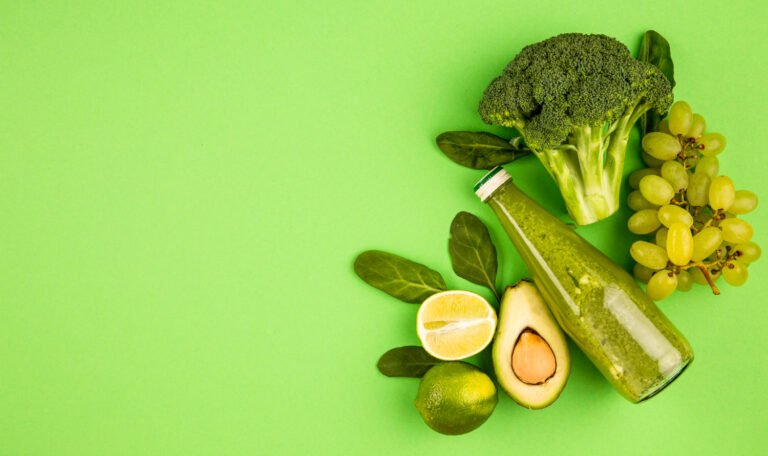
Importance of a Liver-Friendly Diet
Your liver works tirelessly around the clock, performing over 500 vital functions to keep your body running smoothly. From filtering toxins and producing essential proteins to storing nutrients and regulating metabolism, this remarkable organ deserves all the support it can get. The good news is that you have the power to nurture your liver’s health through the foods you choose to eat.
By incorporating specific liver-friendly foods into your daily diet, you can help optimize liver function, reduce inflammation, and protect against liver disease. In this comprehensive guide, we’ll explore the top 10 foods that can give your liver the nutritional support it needs to thrive, along with the science-backed benefits each one provides.
What Does The Liver Do?
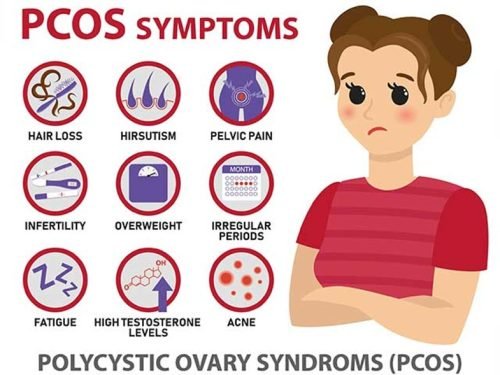
The liver is like your body’s ultimate multitasker. It’s involved in a bunch of important functions to keep you healthy. It creates bile to help digest fats, stores essential vitamins and minerals, and helps purify your blood by getting rid of toxins.
Plus, it’s a key player in your body’s immune system. To keep your liver in tip-top shape, it’s important to eat a healthy liver friendly diet, drink plenty of water, and avoid overdoing it with alcohol and certain medications. Including liver-friendly foods like avocado, garlic, green leafy vegetables, turmeric, and green tea can also support your liver health. These foods contain antioxidants, vitamins, and other nutrients that can help your liver function at its best.
1. Fruits and Vegetables
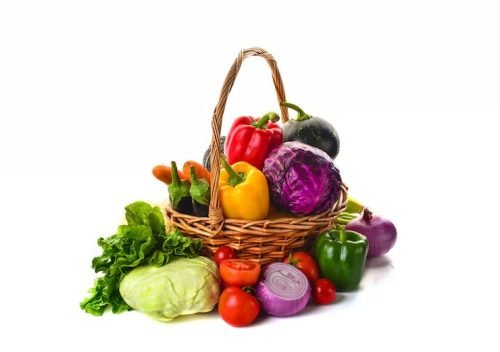
Fruits and vegetables are rich in fiber, which is essential for protecting the liver by aiding in preventing and reducing fat accumulation. Fiber helps increase satiety, promoting fat loss and supporting a healthy weight management, which is vital for liver health.
Fruits and vegetables good for liver contain a variety of vitamins, minerals, and plant compounds that are beneficial for liver function. These nutrients help protect the liver from oxidative stress and inflammation, maintaining its overall health.
2. Ginger
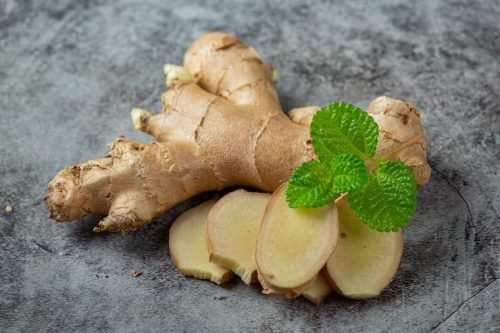
Ginger is the best food for fatty liver as it is a root with a range of benefits, including promoting liver health. It contains anti-inflammatory and antioxidant compounds such as gingerols and shogaols, which may benefit individuals with liver conditions like non-alcoholic fatty liver disease (NAFLD). These compounds aid in reducing oxidative stress and inhibiting the production of proinflammatory substances that can lead to cellular damage.
Ginger powder and fresh ginger can be easily incorporated into various sweet and savory dishes, making it a versatile and beneficial kitchen ingredient for individuals concerned about their liver health.
3. Garlic
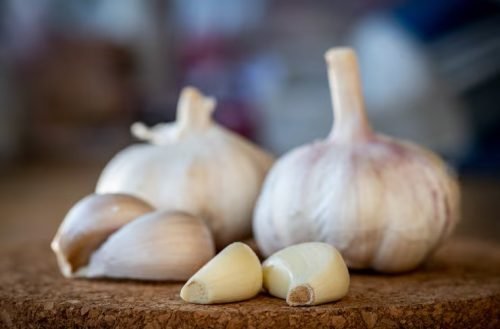
Garlic, a commonly used herb, is packed with liver-supportive substances such as allicin, allinin, and ajoene, which have potent antioxidant and anti-inflammatory effects in the body. Regular consumption of garlic may help improve liver health in individuals with liver disease and potentially reduce the risk of liver cancer.
Regular eating raw garlic may lower the risk of liver diseases such as NAFLD and liver cancer in certain populations. For example, a study involving 9,944 Chinese adults found that consuming raw garlic two or more times per week was associated with a 23% reduced risk of liver cancer compared to consuming no raw garlic or eating raw garlic less than twice per week.
4. Olive Oil
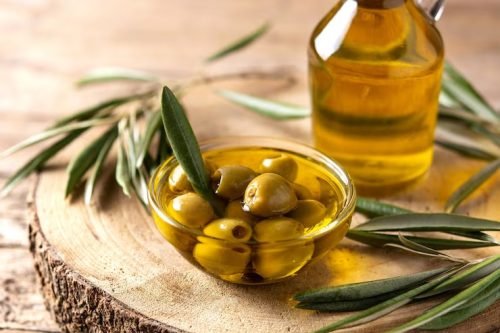
Olive oil, a key component of the Mediterranean diet, plays a significant role in promoting liver health due to its high levels of monounsaturated fats and antioxidants.
Reduced Accumulation of Liver Fat: Olive oil’s monounsaturated fats and antioxidants may help to decrease the accumulation of fat in the liver, particularly in individuals with conditions like non-alcoholic fatty liver disease (NAFLD).
General Liver Health: Antioxidant compounds found in olive oil could help promote general liver health by protecting liver cells against oxidative damage and preventing inflammation. These properties contribute to safeguarding the liver against cellular damage and reducing markers of liver disease.
5. Chia and Flax Seeds
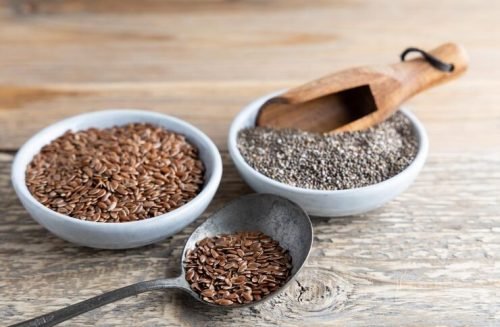
Both chia seeds and flaxseeds are incredibly rich in fiber, which is specifically essential for individuals with liver disease. High-fiber foods for liver can help protect against liver disease by promoting healthy body weight, stimulating the growth of beneficial gut bacteria, and reducing inflammation. In addition, chia seed consumption has been associated with NAFLD regression, and flaxseed consumption has been linked to decreased markers of liver disease and liver fat accumulation.
6. Seafood
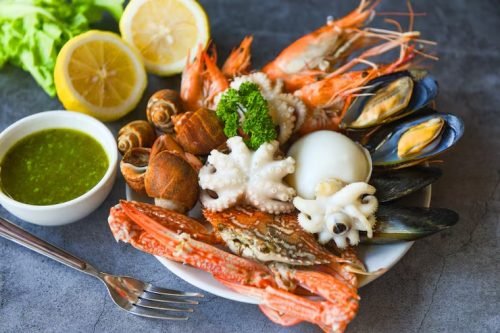
Seafood plays a significant role in promoting liver health due to its rich content of anti-inflammatory fats and antioxidant nutrients, such as selenium and vitamin E. Diets rich in seafood may help reduce liver fat and protect against liver diseases such as non-alcoholic fatty liver disease (NAFLD) and liver cancer.
7. Coffee and Tea

High consumption of coffee has been linked to a significant reduction in liver cancer risk and other liver diseases. Studies have indicated that coffee consumption exhibits antioxidant and anti-inflammatory effects, contributing to liver health.
Regular consumption of coffee has been associated with a reduced risk of liver cancer incidence and mortality. Green tea is rich in antioxidants, particularly catechins, which have shown protective effects against liver disease.
8. Cacao products
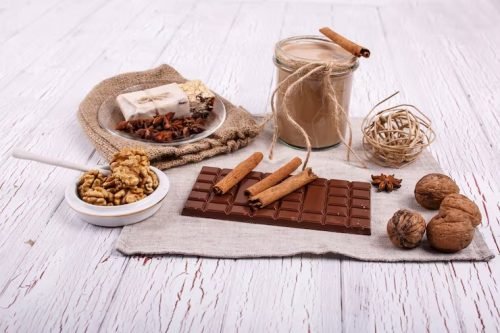
Cacao products, such as dark chocolate and cocoa powder, can be liver-friendly foods when consumed in moderation. Research suggests that chocolate consumption may help lower liver enzyme levels and improve various aspects of health in individuals with liver disease.
However, it’s important to choose cocoa products that contain little or no added sugar, as excessive sugar consumption can be detrimental to liver health. Opting for high-quality dark chocolate with a high cocoa content and minimal added sugar is beneficial. Incorporating cocoa powder into recipes, such as in homemade hot cocoa with milk alternatives and natural sweeteners, offers a way to enjoy the potential liver benefits of cacao while avoiding excessive added sugars.
9. Blueberries
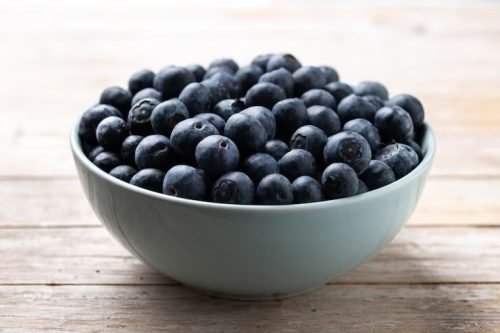
Blueberries are a nutritious and delicious fruit that offer various health benefits. They are rich in antioxidants and nutrients, making them a smart addition to a healthy diet. Specifically, blueberries contain polyphenols, which are powerful antioxidants that can help protect the body from oxidative stress and inflammation. The polyphenols in blueberries may also help in protecting against nonalcoholic fatty liver disease, which is often associated with obesity and high cholesterol.
They are also a good source of vitamins C and K, as well as dietary fiber. Incorporating blueberries into your liver friendly diet can support your immune system, aid in digestion, and promote heart health.
10. Spinach
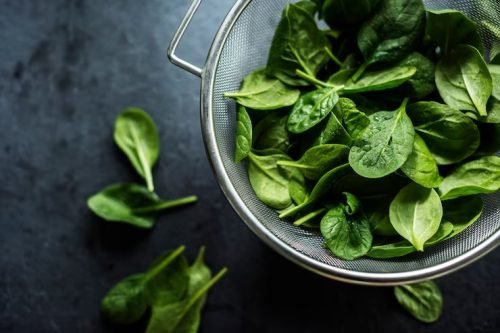
Spinach is one of highly nutritious leafy green Vegetables good for liver health. It offers various health benefits, including its positive effects on liver health. Spinach contains a powerful antioxidant called glutathione, which plays a crucial role in supporting the liver’s detoxification processes and overall function.
Incorporating spinach into your liver friendly diet can help promote optimal liver health. This versatile vegetable can be easily prepared in various ways, such as adding it to salads, smoothies, omelets, stir-fries, and soups. Whether enjoyed raw or cooked, spinach can be a valuable addition to a well-rounded and healthful diet.
Supporting your liver health doesn’t have to be complicated or require drastic dietary changes. By incorporating these ten liver-friendly foods into your regular meal planning, you’re taking proactive steps toward maintaining optimal liver function and protecting this vital organ for years to come. From the antioxidant-rich blueberries and spinach to the anti-inflammatory properties of ginger and garlic, each food on this list offers unique benefits that work synergistically to support your liver’s natural detoxification processes.
